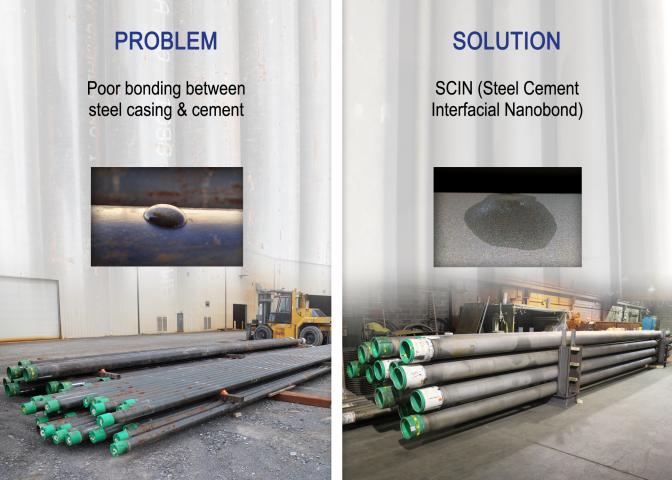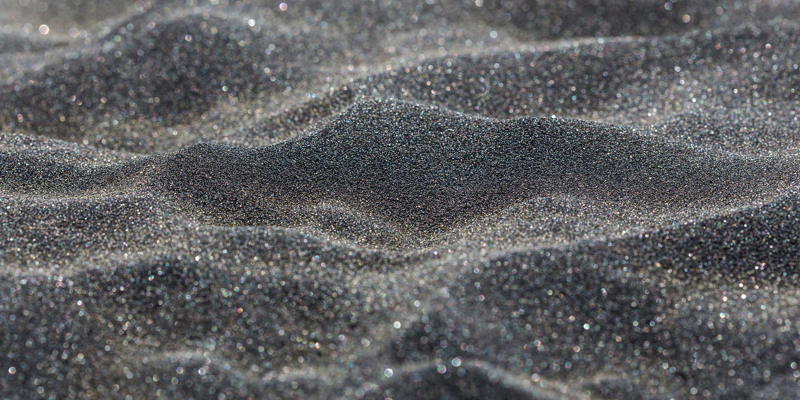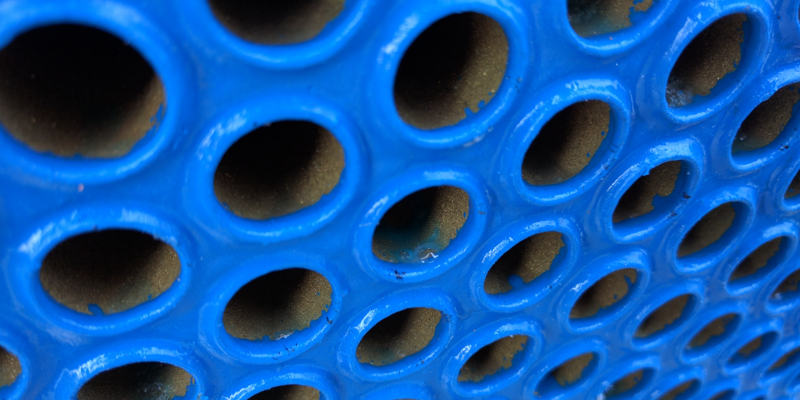SCIN: Steel Cement Interfacial Nanobond

For several decades, techniques for modifying the surface of steel pipes were practiced with varying results. In addition, these methods did not address either the hydrophobicity of the carbon steel or steel/cement interfacial bond, other than the use of surfactants in spacers and cement slurry. SCIN offers an economical solution to this issue by achieving a superhydrophilic pipe surface that is chemically reactive to Portland cement, allowing an effective bond to cement.
Working with a major operator, Oceanit has successfully field tested SCIN in both unconventional and deepwater environments. The pipe treatment was applied to over 5,200 feet of pipe, ranging from a 5-inch to 16-inch diameter. Post-job cement evaluation logs by a variety of techniques demonstrate a consistent improvement in acoustic coupling between the casing and cement.
- Creates a permanent, superhydrophilic surface
- Increases interfacial bond between steel and cement
- Improvement in acoustic cement evaluation
- Highly scalable process suitable for steel tubulars, valves, and components
- Excellent high-pressure, high-temperature stability
- No changes required to normal pipe handling equipment or procedures
HOPS: HIGH-STRENGTH OIL & GAS PROPPANT SUBSTITUTE

Unconventional hydraulic fracturing in the global market has been on the rise for the past several years. However, one of the main challenge of using proppant to stimulate wells outside of the continental US is the lack of a suitable domestic proppant supply. Import of silica, resin coated or ceramic proppants, is cost prohibitive, and adds a logistical burden to the entire operation. Many international locations are rich in sand deposits, however most of them fall under non-standard silica sand that are not suitable for hydraulic fracturing.
Oceanit has developed an innovative solution to supply high strength proppant for hydraulic fracturing in international markets by using locally sourced sand. HOPS converts locally sourced, poor quality sand into a high strength product capable of surviving well conditions and formation closure stresses. Local sourcing removes the high cost of transportation that impacts proppant costs and product availability.
- Low cost
- Excellent high-strength and high-temperature stability
- Manufactured using locally available materials
- Highly scalable manufacturing process
HeatX: reduce maintenance and downtime costs for heat exchangers

Oceanit’s HeatX coating, a highly advanced coating developed and demonstrated for Oil and Gas application is a low adhesion, high pressure, high temperature stable, omniphobic (oil and water resistant) coating that is well suited for the prevention of barnacle and biofouling growth on the tubes.
Due to the extreme low surface energy of the HeatX coating, the coated surface will be extremely slippery and minimizes the barnacle ability to bind on the surface and grow. HeatX does not contain any harmful biocidal compounds that are commonly found in antifouling coatings and the final resulting surface is inert to both water and oil based liquids. HeatX coating is a water based formulation and can be applied on to even unprepared corroded surfaces to achieve the full benefits. In addition, the overall thickness of the HeatX coating is less than 4mil, and does not affect the overall heat transfer.
TALK TO AN OCEANIT SPECIALIST
Ask our product experts how
Oceanit can help increase your
asset profitability.

